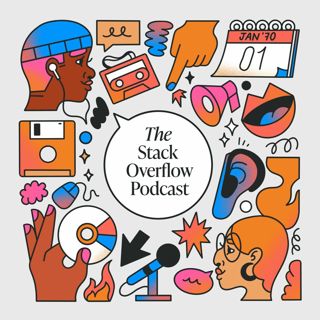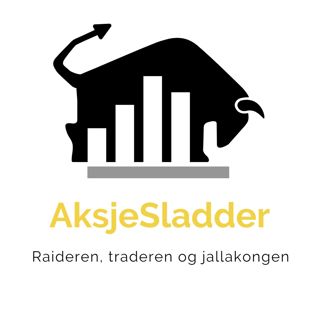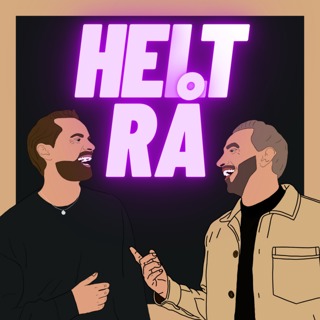
A murder mystery: who killed our user experience?
The infrastructure that networked applications lives on is getting more and more complicated. There was a time when you could serve an application from a single machine on premises. But now, with cloud computing offering painless scaling to meet your demand, your infrastructure becomes abstracted and not really something you have contact with directly. Compound that problem with with architecture spread across dozens, even hundreds of microservices, replicated across multiple data centers in an ever changing cloud, and tracking down the source of system failures becomes something like a murder mystery. Who shot our uptime in the foot? A good observability system helps with that. On this sponsored episode of the Stack Overflow Podcast, we talk with Greg Leffler of Splunk about the keys to instrumenting an observable system and how the OpenTelemetry standard makes observability easier, even if you aren’t using Splunk’s product. Observability is really an outgrowth of traditional monitoring. You expect that some service or system could break, so you keep an eye on it. But observability applies that monitoring to an entire system and gives you the ability to answer the unexpected questions that come up. It uses three principal ways of viewing system data: logs, traces, and metrics.Metrics are a number and a timestamp that tell you particular details. Traces follow a request through a system. And logs are the causes and effects recorded from a system in motion. Splunk wants to add a fourth one—events—that would track specific user events and browser failures. Observing all that data first means you have to be able to track and extract that data by instrumenting your system to produce it. Greg and his colleagues at Splunk are huge fans of OpenTelemetry. It’s an open standard that can extract data for any observability platform. You instrument your application once and never have to worry about it again, even if you need to change your observability platform. Why use an approach that makes it easy for a client to switch vendors? Leffler and Splunk argue that it’s not only better for customers, but for Splunk and the observability industry as a whole. If you’ve instrumented your system with a vendor locked solution, then you may not switch, you may just let your observability program fall by the wayside. That helps exactly no one. As we’ve seen, people are moving to the cloud at an ever faster pace. That’s no surprise; it offers automatic scaling for arbitrary traffic volumes, high availability, and worry-free infrastructure failure recovery. But moving to the cloud can be expensive, and you have to do some work with your application to be able to see everything that’s going on inside it. Plenty of people just throw everything into the cloud and let the provider handle it, which is fine until they see the bill.Observability based on an open standard makes it easier for everyone to build a more efficient and robust service in the cloud. Give the episode a listen and let us know what you think in the comments.See Privacy Policy at https://art19.com/privacy and California Privacy Notice at https://art19.com/privacy#do-not-sell-my-info.
27 Okt 202128min

The first ten years of our programming lives
This episode was inspired by Joma Tech's review of his first ten years in coding. Ben Popper shared a fair amount of his coding journey through the series Ben Popper is the Worst Coder in the World. Should you actually write out code on paper as some of us had to do? Maybe.Modding games gets people into programming. For Ryan, Freedom Force got him into Python. Today, it's Minecraft and Roblox. Want to jump start your career? Find a community on Discord or Twitter and make some contacts. The software industry is made of people. Hackathons helped Cassidy find a deeper love for coding, oh and her husband too.See Privacy Policy at https://art19.com/privacy and California Privacy Notice at https://art19.com/privacy#do-not-sell-my-info.
26 Okt 202122min

Quality code is the easiest to delete
Isaac's piece, Code quality: a concern for businesses, bottom lines, and empathetic programmers, ran recently on the Stack Overflow blog. A simple metric for code quality code be how easy is it to delete any given piece of code. There's no algorithmic way to judge quality code, but experienced engineers know it when they see it. Jeff Atwood's Performance is a Feature blog post gets a lot of mileage with our writers. But code quality isn't on the same axis; it's not a feature you can prioritize. It's part of the development process. See Privacy Policy at https://art19.com/privacy and California Privacy Notice at https://art19.com/privacy#do-not-sell-my-info.
22 Okt 202122min

Getting your first job off the CSS mailing list
At LinkedIn scale, it pays to save your developers a few minutes or even seconds on repeat tasks. Sara walks us through her experience managing senior engineers, and trying to improve developer experience and tooling, on a massive, global platform with over a billion user interactions a month.Paul shares some of his firm's latest work, helping to visualize the impact of climate change at Probable Futures. Interested in doing work in software focused on climate change? Paul recommends you learn a bit about NetCDF files.Follow Sara on Twitter here.Follow Paul on Twitter here.Enjoy our brain teaser of the week: a new way to cut pizza.See Privacy Policy at https://art19.com/privacy and California Privacy Notice at https://art19.com/privacy#do-not-sell-my-info.
19 Okt 202119min

Can AI solve car accidents and find you a parking space?
Graybeard conference alert! Eran and Ryan both started their technology journeys on the venerable Commodore 64. During his academic days, Eran helped to map all the BGP (background gateway protocol) gateways in the world. This got a fair bit of press recently during the six hour Facebook outage.Nexar provides smart dashcams and an app that help cars understand the roads around them. While networked cameras on every car could be a privacy nightmare, Nexar says that they have privacy as a foundational part of the SDLC.See Privacy Policy at https://art19.com/privacy and California Privacy Notice at https://art19.com/privacy#do-not-sell-my-info.
15 Okt 202124min

A database built for a firehose
HarperDB is a startup that focuses on highly scalable databases that handle real-time data. Harper is built on Node.js and Express with a little help from Fastify. They know where they excel and where they don't. High data throughput like gaming and vision, great! High data resolution and transactional software like financial applications, not so great. It's speed over accuracy. Instead of a Lifeboat badge today, we shared a relevant question: Q: How to create HarperDB table with lambda.See Privacy Policy at https://art19.com/privacy and California Privacy Notice at https://art19.com/privacy#do-not-sell-my-info.
12 Okt 202124min

Wait, we're all content moderators now?
Read more about the climate debate surrounding NFTs here.We really enjoyed this piece: You either die an MVP, or live long enough to build content moderation.You can find Ben on Twitter here.You can send ideas for blog posts to Ryan Donovan at our pitch box.You can find Cassidy on Twitter here and read the newsletter she helps us curate here.You can find Ceora on Twitter here and check out more about Apollo GraphQL here.See Privacy Policy at https://art19.com/privacy and California Privacy Notice at https://art19.com/privacy#do-not-sell-my-info.
8 Okt 202131min

Building image search, but for any object IRL
You can learn more about Paul here.You can read more about Physna here.Paul is excited about the Metaverse. So are we! See Privacy Policy at https://art19.com/privacy and California Privacy Notice at https://art19.com/privacy#do-not-sell-my-info.
5 Okt 202123min





















